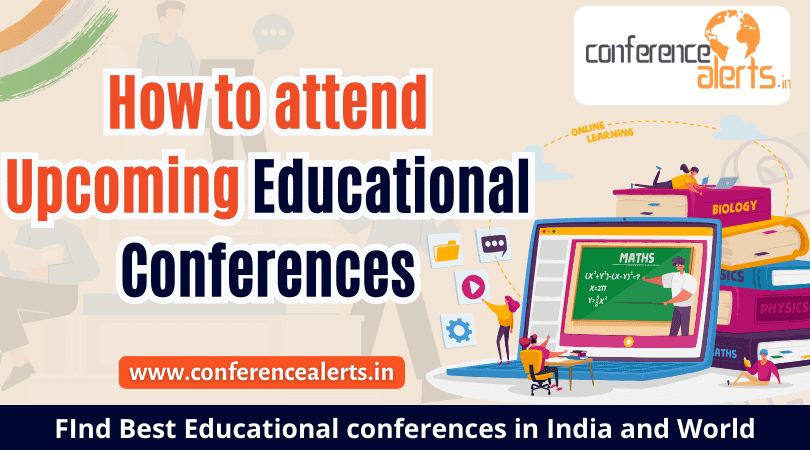Attending an international conference can be a game-changer for academics, researchers, and professionals. Cost of travel, accommodation, and registration fees can be prohibitive. There are several strategies you can employ to attend international conferences in Europe for free or at a minimal cost. This article explores various avenues for securing free or low-cost attendance at these conferences.
1. Finding Free Conference Opportunities
A. Leverage Online Resources
Several platforms regularly list international conferences, and some even specifically highlight free or low-cost options. Websites such as Conference Alerts offer comprehensive databases of upcoming conferences in various fields. You can filter these based on location, discipline, and fee structure.
B. Utilize Academic and Professional Networks
Join mailing lists of professional associations and academic societies in your field. Many associations regularly communicate opportunities for free registration via sponsorships or scholarships for early-career researchers or members.
C. Look for Local Conferences
Many smaller conferences are less expensive or free for locals. Search for regional events in Europe that may not charge a fee for participants, particularly for those who can present on behalf of their institutions.
2. Opportunities for Sponsorship and Scholarships
A. Institutional Support
If you’re affiliated with an academic institution, inquire about funding opportunities. Many universities offer grants or sponsorship for faculty and graduate students to attend conferences.
B. Conference Grants and Scholarships
Some conferences provide grants or scholarships specifically for certain demographics (e.g., students, early-career professionals, underrepresented groups). Check the conference’s official website for details on applying for these opportunities.
C. Research Funding Bodies
Explore the potential of funding through government or nonprofit research bodies. Many offer competitive grants that can cover travel and registration fees for conferences that align with their research agendas.
3. Volunteer Opportunities
A. Become a Volunteer
Volunteering at a conference not only gives you free access but also allows you to network with professionals in your field. Many conferences need help with registration, logistics, and other tasks. In exchange for a few hours of work, you can gain free entry and sometimes even travel reimbursement.
Steps to Follow:
- Identify Potential Conferences: Look for upcoming conferences in your area of expertise.
- Contact Organizers Early: Reach out to conference organizers and express your interest in volunteering. They usually appreciate proactive assistance and may prioritize early applicants.
- Be Prepared to Work: Understand that volunteering often requires commitment throughout the event, including evenings and weekends.
B. Collaborate with Student Associations
Many student associations or organizations affiliated with universities host or coordinate conferences. Involvement in these associations may provide free entry as they often seek members to help with events.
4. Networking and Speaking Engagements
A. Submit Abstracts or Papers
If you have research findings or a topic of interest, consider submitting an abstract to present at the conference. Many conferences waive registration fees for those accepted to present.
Tips for Submission:
- Know the Requirements: Review the conference guidelines thoroughly.
- Keep it Relevant: Ensure your submission aligns closely with the conference theme and focus.
- Highlight Innovation: Emphasize how your contributions are novel or relevant to the attendees.
B. Connect with Attendees
Use platforms like LinkedIn to connect with past attendees or speakers. They may provide tips on conferences offering free slots or direct you to lesser-known but impactful events.
5. Utilize Student Discounts and Memberships
A. Research Membership Options
Many professional organizations offer discounted rates for students. Joining these organizations often provides access to members-only events, including conferences without fees.
B. Take Advantage of Early Bird Rates
Registering early can sometimes lead to significantly reduced fees. Look for conferences with early registration discounts and aim to plan ahead.
6. Leverage Social Media and Online Communities
A. Join Relevant Online Groups
Participate in online forums, social media groups, and communities related to your field. Members often share information about upcoming conferences, particularly those offering scholarships or free attendance.
B. Engage with Conference Organizers
Follow conference organizers on social media. Occasionally, they run contests or promotions for free passes.
7. Explore Hybrid or Virtual Options
A. Participate Remotely
Many international conferences offer hybrid formats or virtual attendance options, significantly lowering costs. Watch for announcements from conferences that convert to online formats due to global challenges.
B. Follow Up-Streamed Sessions
Sometimes recorded sessions are available after the event. While this does not replace networking, it can provide substantial insights into the particular field.
8. Plan Your Budget Wisely
A. Create a Travel Budget
If you secure a free pass, ensure you budget wisely for travel and accommodation. Look for affordable housing options like hostels, shared accommodations, or even dormitory spaces available during summer.
B. Utilize Public Transportation
Familiarize yourself with local transport systems. Public transport in European cities is often highly efficient and cost-effective.
9. Networking During the Conference
A. Make the Most of Your Time
Once you secure your attendance, prepare a networking strategy. Bring business cards, practice your elevator pitch, and be open to meeting new people. The connections you build can lead to future collaborations and opportunities.
B. Follow Up After the Conference
Make sure to connect with new contacts via LinkedIn or email after the event. A follow-up can solidify relationships formed at the conference and lead to further opportunities.
Attending an international conference in Europe for free might seem daunting, but with the right approach and persistence, it is entirely achievable. By leveraging institutional resources, volunteering, submitting research, and utilizing online platforms, you can access valuable experiences without the financial burden. Remember to plan early, network strategically, and engage in the academic community actively. Your participation could not only enhance your knowledge and skills but also provide networking opportunities that might propel your career to new heights.
By applying these strategies and remaining open to various paths, you can turn your dream of attending an international conference into a reality – without breaking the bank.




